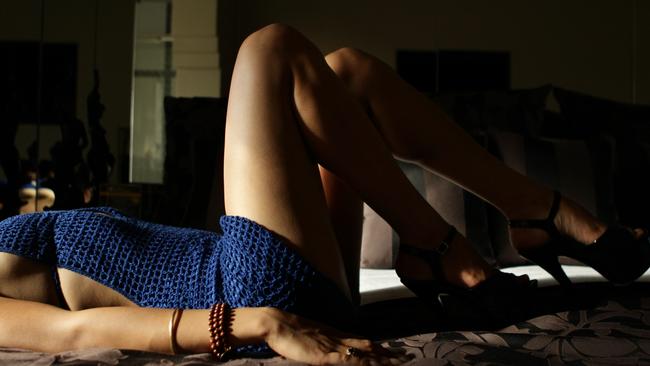
WEIGHT: 46 kg
Bust: Small
One HOUR:70$
NIGHT: +60$
Services: Sex lesbian, Facial, Fetish, Massage classic, Facial
Prostitution in Australia is governed by state and territory laws, which vary considerably, although none ban the selling of sex itself. There is no evidence of pre-colonial prostitution amongst Indigenous Australians , however sexual practices more consistent with the modern understanding of polygamy were common, such as the exchange of women to demonstrate friendship. Colonial-era prostitution was controlled via legislation such as the colonial versions of the Contagious Diseases Acts , passed in Victoria and Queensland.
Although colonies such as South Australia chose not to pass any CD Act, seeing it as "infringement on the rights of women and official condoning of immorality". From the s onwards, prostitution restrictions have generally eased. A Australian Institute of Criminology report recommended decriminalization of prostitution. Queensland since 2 August [ 15 ] is the most recent state to decriminalise sex work, removing most criminal penalties associated with sex work and abolishing the brothel licensing systems.

Sex work in Australia has operated differently depending on the period of time evaluated. For this reason discussion is divided into three distinct periods: convict, late colonial, and post-federation. Pre-colonial "prostitution" among Aboriginal peoples is not considered here, since it bore little resemblance to contemporary understanding of the term. The late colonial period viewed prostitution as a public health issue, through the Contagious Diseases Acts , versions of which passed in Victoria and Queensland, with compulsory examination of prostitutes and detention in " lock hospitals " if found to be carrying a " venereal disease ".
South Australia chose not to pass any CD Act, seeing it as "infringement on the rights of women and official condoning of immorality". Since Federation in , the emphasis has been on criminalising activities associated with prostitution. Although not explicitly prohibiting paid sex, the criminal law effectively produced a de facto prohibition. Prostitution probably first appeared in Australia at the time of the First Fleet in Some of the women transported to Australia had previously worked in prostitution, while others chose the profession due to economic circumstances, and a severe imbalance of the sexes.
While the Bigge Inquiry refers to brothels, these were mainly women working from their own homes. In the colonial period, prior to federation , Australia adopted the Contagious Diseases Acts of the United Kingdom between and in an attempt to control venereal disease in the military, requiring compulsory inspection of women suspected of prostitution, and could include incarceration in a lock hospital.





































